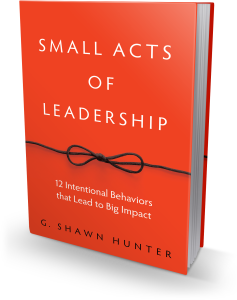Keeping Score is a Losing Game
Maybe it’s a function of the age, of being 12 years old. I donno. But a few years ago, our son would keep score of everything. If I asked him to empty the dishwasher, he would say it’s his sister’s turn. If we’re stacking wood in the shed, he lets me know how many more pieces he stacked than his brother. If we go out to buy shoes, he would let me know he picked the ones that cost less, or were cooler, or some other metric of comparison.
Everything was counted as points for, or against. Nothing was out of bounds, “I ate more carrots“, and nothing was beyond his calculating gaze “He’s a faster runner, but I worked harder.”
If you are ever wondering whose turn it is to take out the trash, then it’s your turn. And you’re better off to do it without even knowing whose turn it might be. At work, if you’re keeping score on whose turn it is to proof-read the marketing copy, draft the proposal, assemble the meeting agenda, or edit the upcoming presentation, then you’re likely to feel ripped off when you do it, because making contributions based on reciprocation is always going to make someone feel like they aren’t getting a fair deal.
A workplace of zero-sum, scarcity thinking creates an environment in which there aren’t enough jobs, isn’t enough credit, and isn’t enough opportunity to go around. When work relationships are built on the basis of scarcity, we monitor the contribution of others, hoard credit, and harbor frustration at our work. Then we talk trash about our colleagues after work.
To counteract the negative effects of constantly keeping score at work, try hosting a Reciprocity Ring. Developed by sociologist Wayne Baker and his wife Cheryl, the exercise works like this: Assemble a group of people – anywhere from 8 to 50 people – and ask each person to come to the meeting with a request. It could be something as simple as an introduction, or as wild as a lifelong dream. The object of the group is to try to fulfill each person’s wish using their knowledge, resources and connections.
It’s also important to do this live, face-to-face, together. Research shows that requests made in-person are 34 times more likely to be effective and responded to.
The wonderful part about a Reciprocity Ring is that the team goal is to fulfill someone’s personal or professional wish, so it’s a great exercise in giving. The other wonderful part about the exercise is that it normalizes asking for help – everyone must arrive with their own wish. Wayne and Cheryl Baker say they see gender differences at work when it comes to giving. According to Baker, “Women are more likely to suffer generosity burnout. They help but don’t ask for what they need, hence, burnout. Men give and ask for help.” In a Reciprocity Ring, everyone has to arrive with a request, so it creates an environment in which it’s safe to ask for help.
Wayne and Cheryl Baker have tuned the exercise to try to achieve higher rates of granted wishes. They encourage participants to arrive with a wish that meets their SMART criteria – specific, meaningful, action-oriented, real, and time-bound. When a wish has these parameters, it’s more likely the group will come up with a solution they can deliver on.
Go on, give it a try. It’s an easy exercise in creating a culture of trust and giving at work.
Building cultures of leadership, trust and innovation starts one small act at a time. Try our course Small Acts of Leadership to move the needle a little in your workplace.
- ____________________________________________________

Last summer, my son and I bicycled across America with two other dads and their teenagers. We published a new book about it called Chasing Dawn. I co-authored the book with my cycling companion, the artist, photographer, and wonderful human jon holloway. Grab a copy. I’ll sign it and send it to your doorstep.



